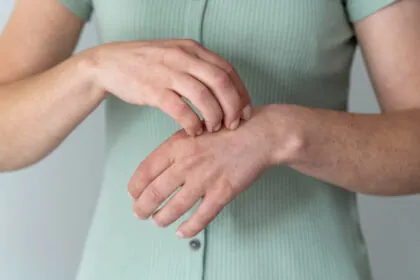Toothaches in children can be a stressful experience, both for the child and the parent. The pain can interfere with eating, sleeping, and your child’s overall well-being.
While it’s always important to consult with a healthcare professional for severe or persistent toothaches, there are numerous natural remedies that can provide relief for mild to moderate pain.
This guide explores to you different and effective natural remedies for toothaches in children, highlighting what works, what to avoid, and when to seek professional help.
Causes of Toothaches in Children
Cavities: The most frequent cause, cavities occur due to poor oral hygiene and the consumption of sugary foods.
Teething: For younger children, the eruption of new teeth can cause significant discomfort.
Gum Disease: Infections and inflammation of the gums can lead to tooth pain.
Dental Trauma: Accidents that result in chipped or broken teeth can cause pain.
Food Stuck Between Teeth: Particles of food trapped between teeth can press against the gums, causing discomfort.
Sinus Infections: Sometimes, sinus pressure can manifest as tooth pain, particularly in the upper teeth.
What Can Help a Child’s Toothache?
Several natural remedies can provide relief from toothaches in children. These remedies are often gentle, safe, and easily accessible at home.
Toothache in Child at Night
Toothaches often feel worse at night, which can affect a child’s sleep and lead to exhaustion and irritability. Here are some tips to manage nighttime toothache:
- Elevate the Head: Prop up the child’s head with pillows to reduce blood flow to the painful area, which can lessen the throbbing sensation.
- Cold Compress: Apply a cold pack to the outside of the jaw to numb the pain and reduce inflammation.
Toothache Child Home Remedies
Here are some tried-and-tested home remedies for relieving toothaches in children:
Saltwater
One tried and effective as a natural disinfectant that can help loosen food particles stuck between teeth. It also reduces inflammation and heals oral wounds.
How to Use: Dissolve half a teaspoon of salt in a glass of warm water. Have the child rinse their mouth thoroughly, swishing the solution around the affected area before spitting it out. Repeat this process a few times a day for best results.
Peppermint
Peppermint has a pleasant and yummiest taste for all kids, making it an excellent remedy for toothaches in children.
How to Use: All you need to do is put freshly-used peppermint tea bags in a freezer for a few minutes. Then place them between your kid’s cheek and gums to relieve toothache.
If you don’t have teabags, mix a few drops of peppermint essential oil with clove oil, apply it to a cotton ball, and place it against the irritated area.
Use Garlic Paste
Garlic is renowned for its antibacterial properties and can provide significant relief from toothache by killing harmful bacteria.
How to Use: Crush a garlic clove to create a paste and apply it directly to the affected tooth. You can mix the garlic paste with a bit of salt for added effectiveness. Have the child rinse their mouth with warm water after a few minutes.
Other Natural Remedies
In addition to the above, several other natural remedies can help for your child’s toothaches in children:
Clove Oil
Clove oil is a traditional remedy known for its analgesic and antibacterial properties.
How to Use: Dilute a few drops of clove oil with a carrier oil (like coconut oil) and apply it to the sore area using a cotton ball.
Vanilla Extract
Vanilla extract contains alcohol, which can numb the pain, and its antioxidant properties help with healing.
How to Use: Dab a small amount of vanilla extract onto a cotton ball and apply it to the affected tooth.
What to Avoid?
While many natural remedies are safe, some should be avoided due to potential risks:
Aspirin: Applying aspirin directly to the tooth or gums can cause burns and is harmful, especially for children.
Harsh Essential Oils: Undiluted essential oils can cause irritation and should always be diluted before use.
Hot Compresses: Heat can sometimes worsen swelling, so it’s better to use cold compresses.
Can Fever cause tooth pain?
No, a fever itself typically does not cause tooth pain.
However, a fever aside with a toothaches in children that can be a sign of a dental infection, which is a serious condition that requires prompt medical attention.
Tips for Preventing Toothaches in Children
Prevention is always better than cure. Here are some tips to prevent toothaches in children:
Maintain Good Oral Hygiene: Encourage regular brushing and flossing to prevent cavities and gum disease.
Limit Sugary Foods and Drinks: Reduce the intake of sweets, sodas, and juices that can contribute to tooth decay.
Regular Dental Check-ups: Schedule routine visits to the dentist to catch and treat problems early.
Healthy Diet: Ensure a balanced diet rich in vitamins and minerals to promote strong, healthy teeth.
Use Fluoride Toothpaste: Fluoride helps strengthen tooth enamel and prevent decay.
Conclusion
Natural remedies can be effective in providing temporary relief from toothaches in children. However, it’s crucial to monitor the situation closely. If the pain persists, worsens, or is accompanied by fever or swelling, it’s essential to seek professional dental care promptly.
FAQs
When should I see my doctor?
You should consult a doctor or dentist if:
- The toothache lasts more than 24-48 hours.
- There is severe pain that isn’t relieved by over-the-counter painkillers.
- The child has a fever, swelling, or pus around the tooth.
- The child experiences difficulty eating, speaking, or breathing.
What to do about a toothache at home?
Start by identifying the cause of the toothache and then apply appropriate home remedies such as saltwater rinses, cold compresses, or natural pain relievers like clove oil or garlic paste. Maintain good oral hygiene and monitor the child’s condition.
Should I take my child to the ER for a toothache?
A visit to the ER is generally unnecessary for a toothache unless there are severe symptoms such as high fever, facial swelling, or difficulty breathing, which could indicate a serious infection. For persistent or severe tooth pain, it’s better to consult a dentist.







